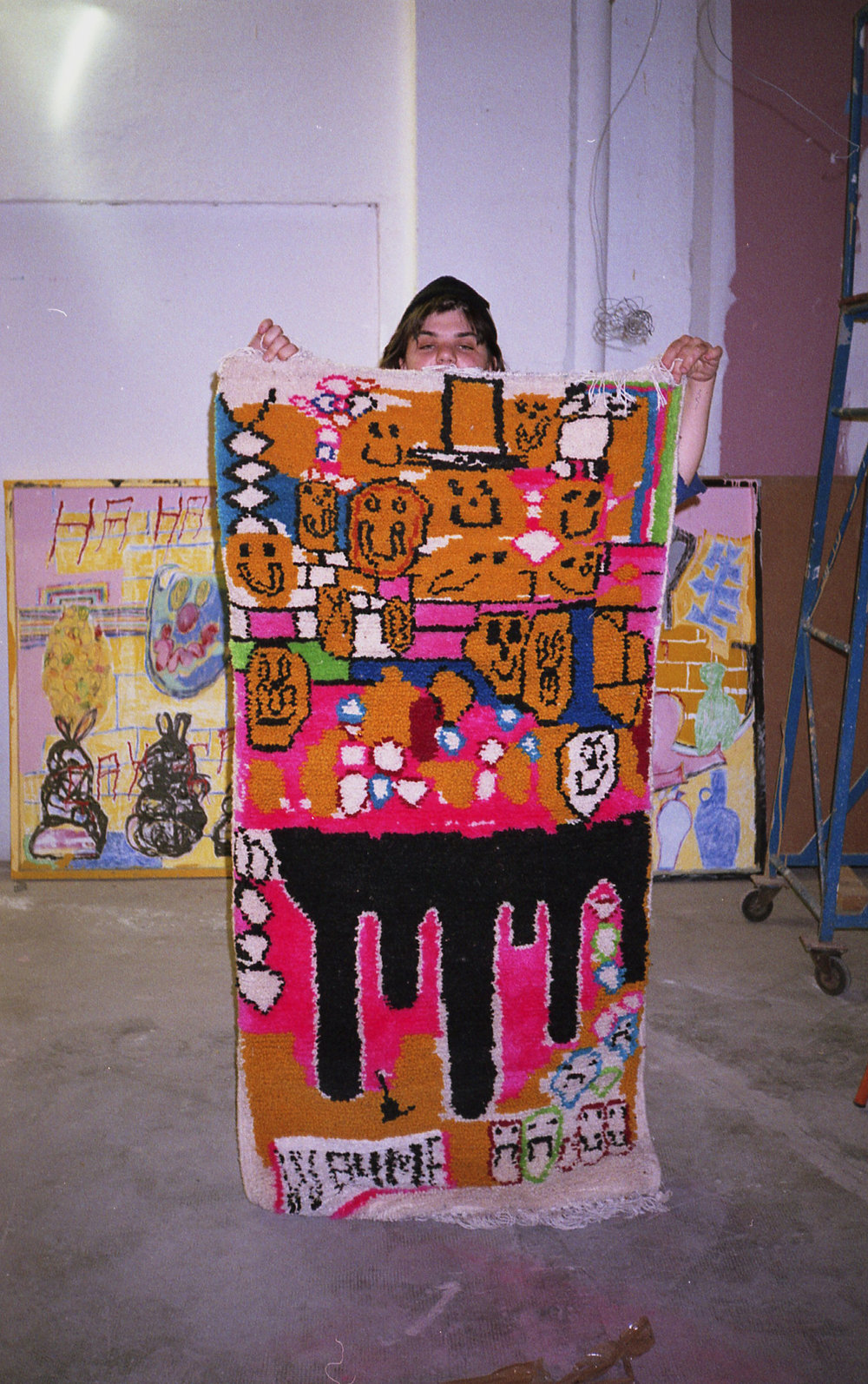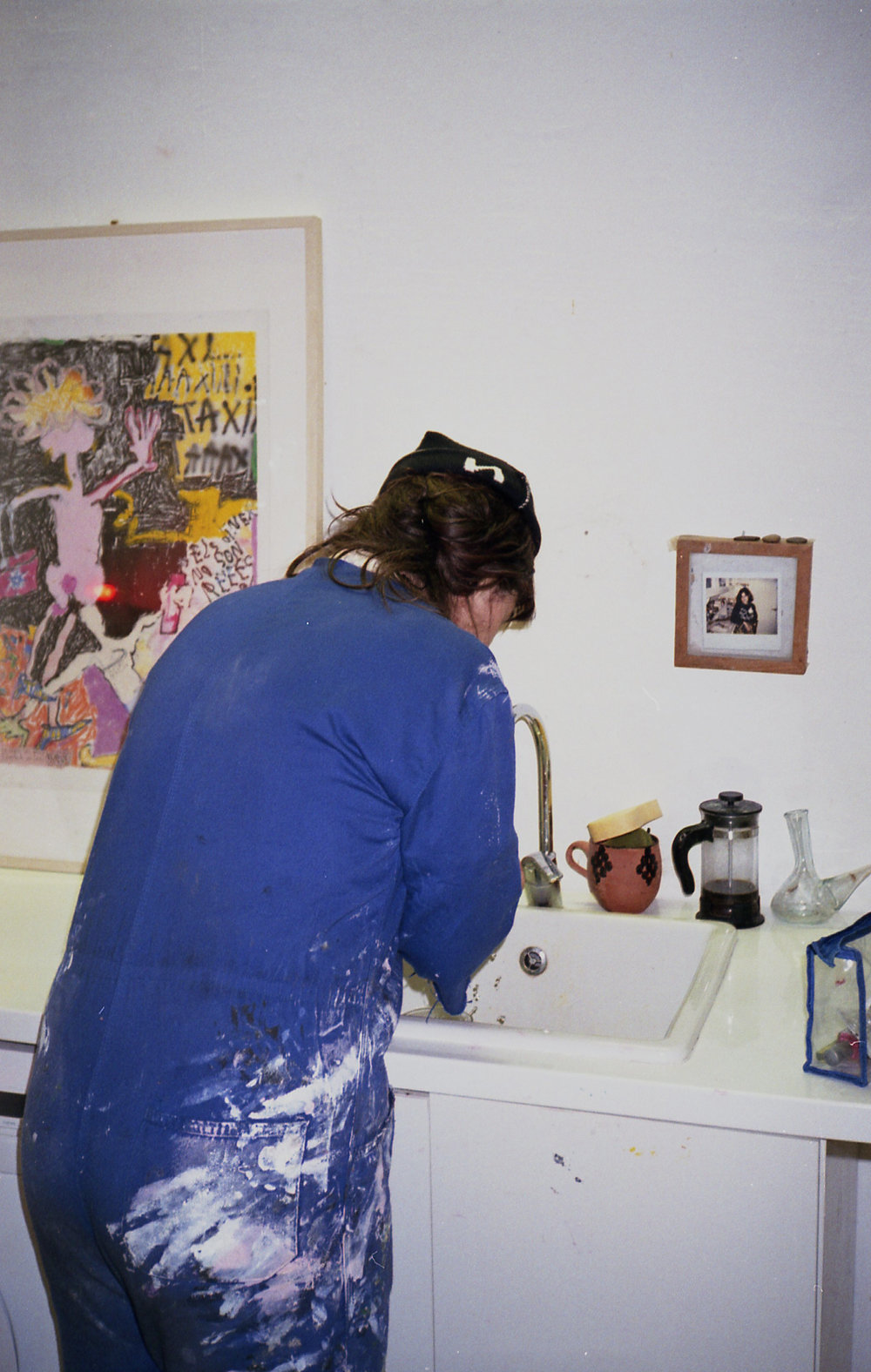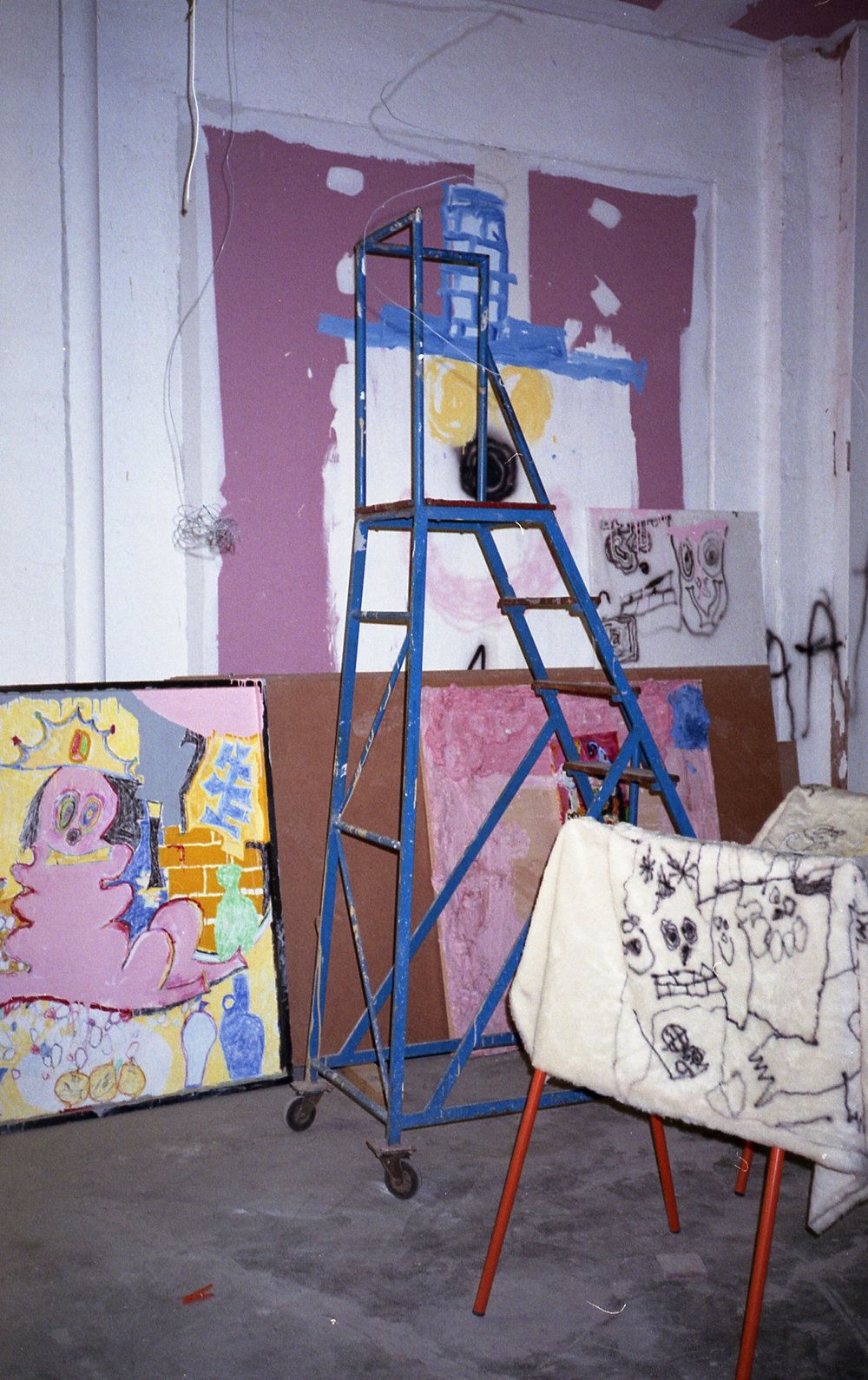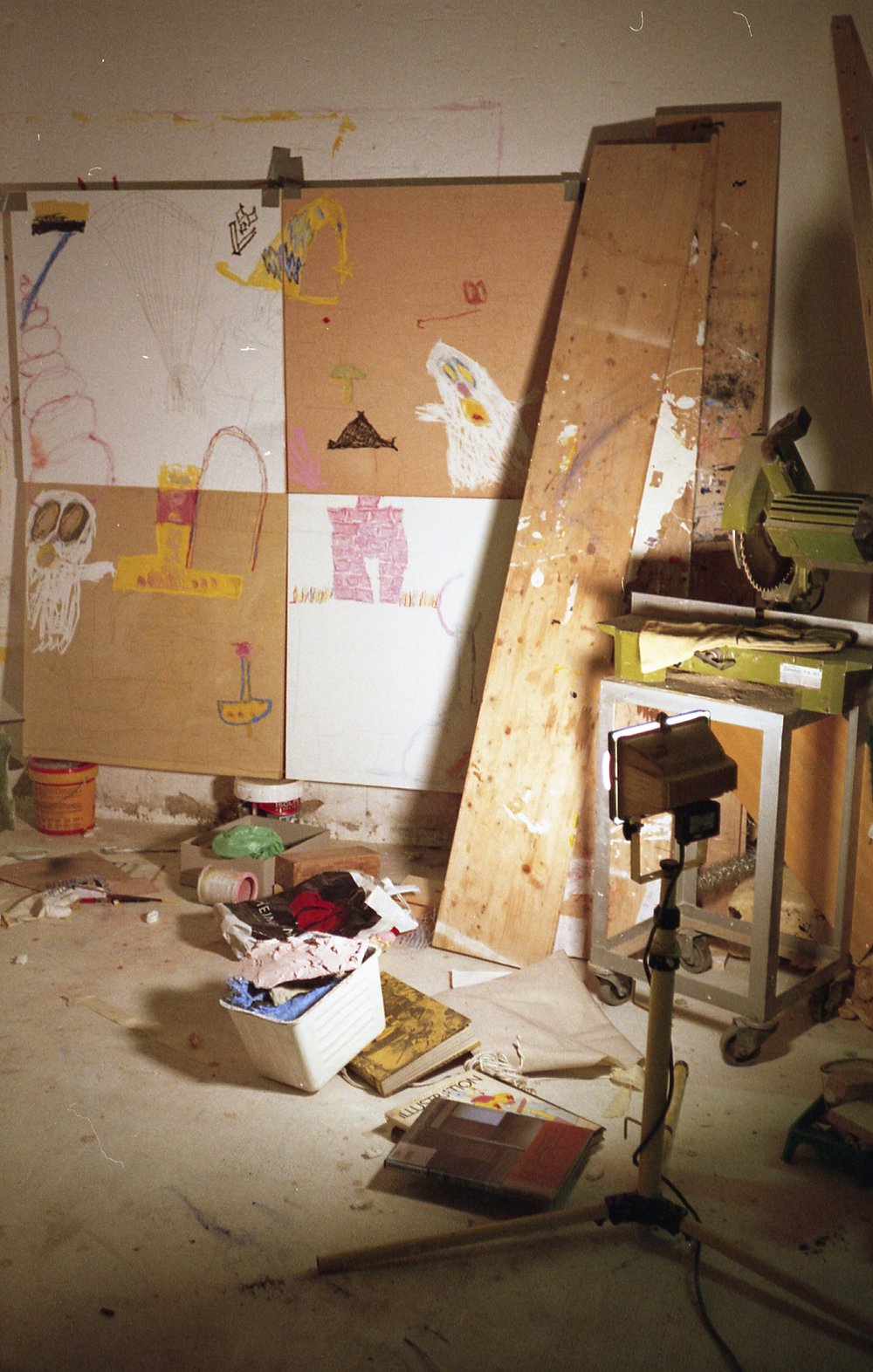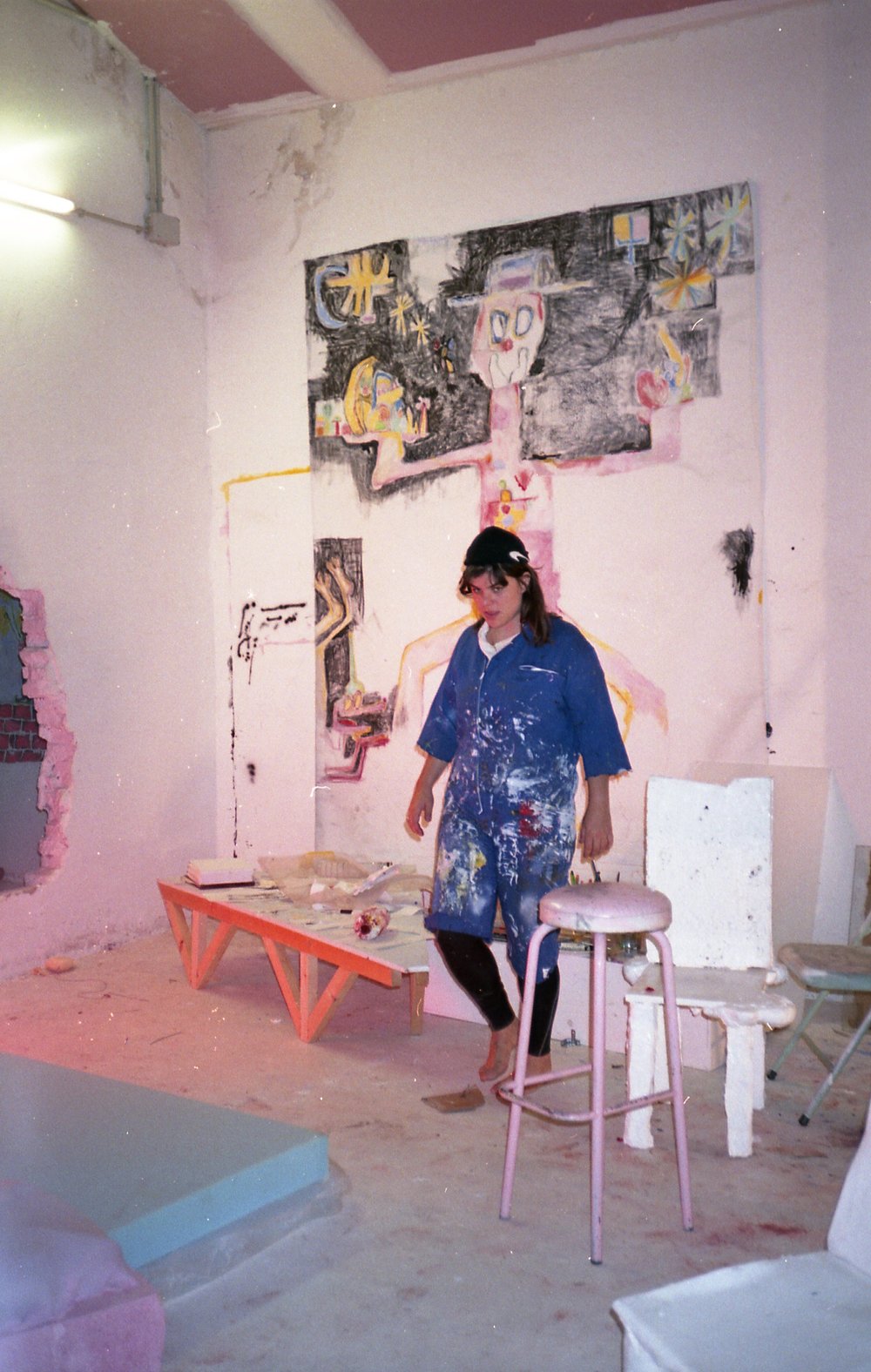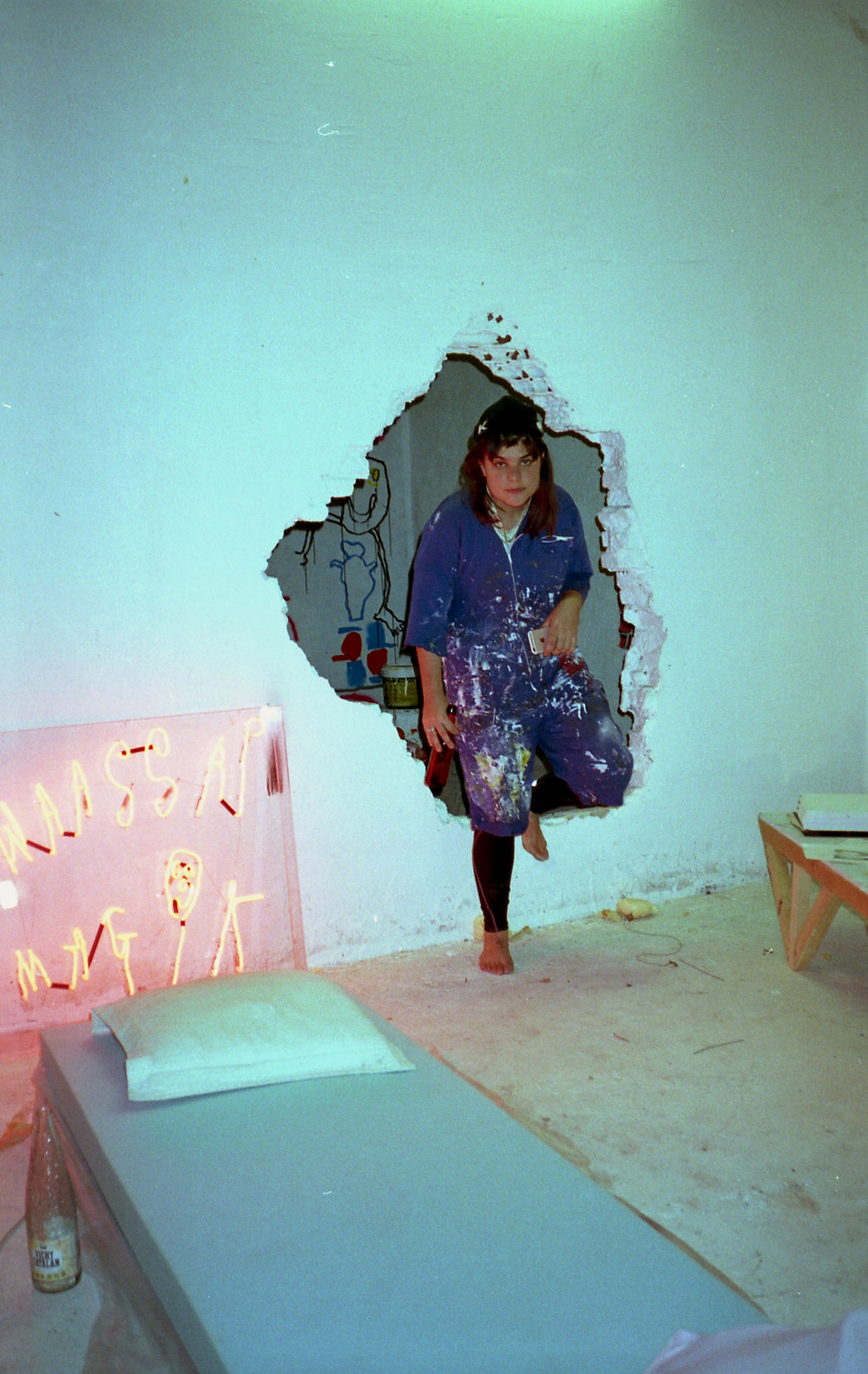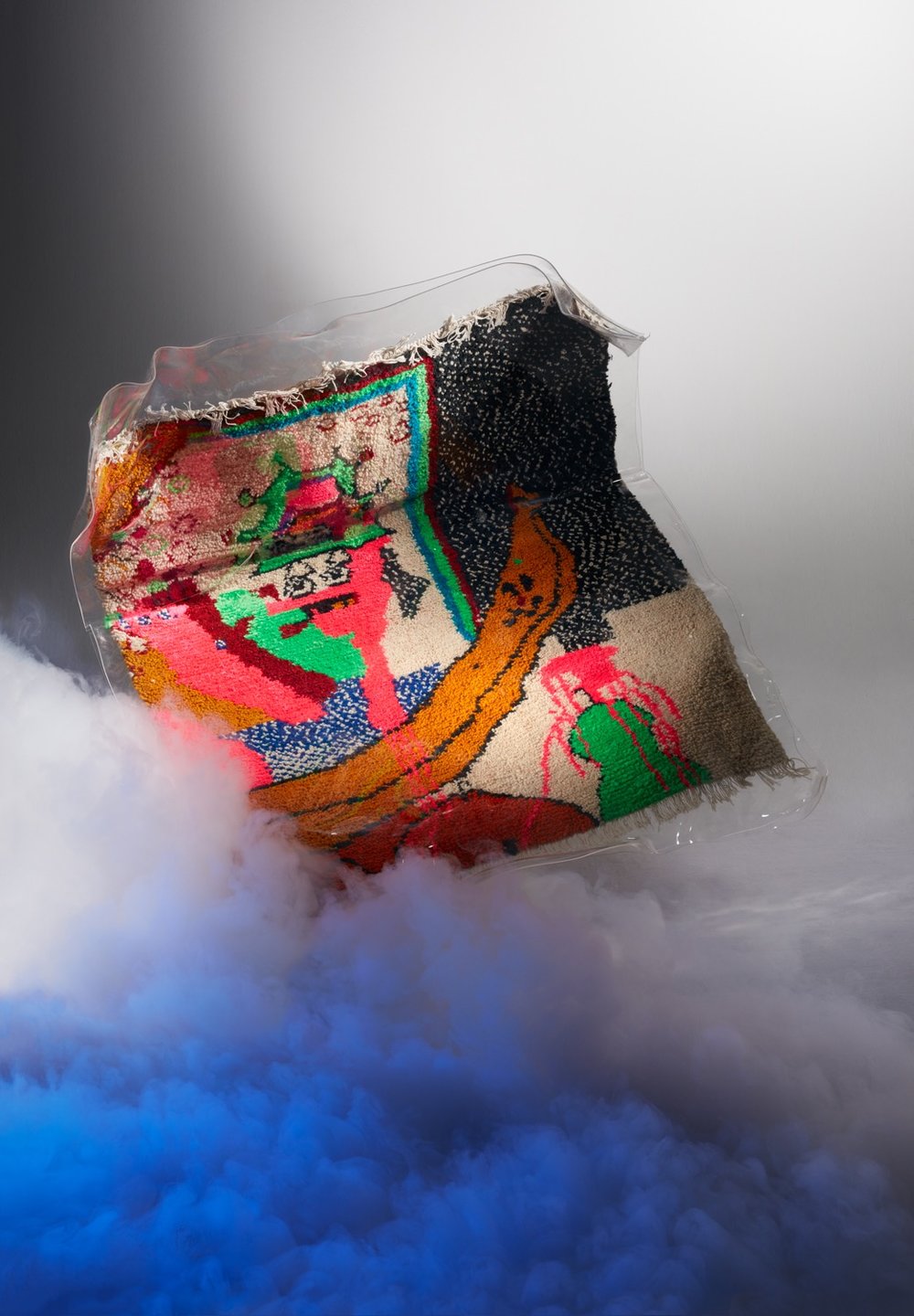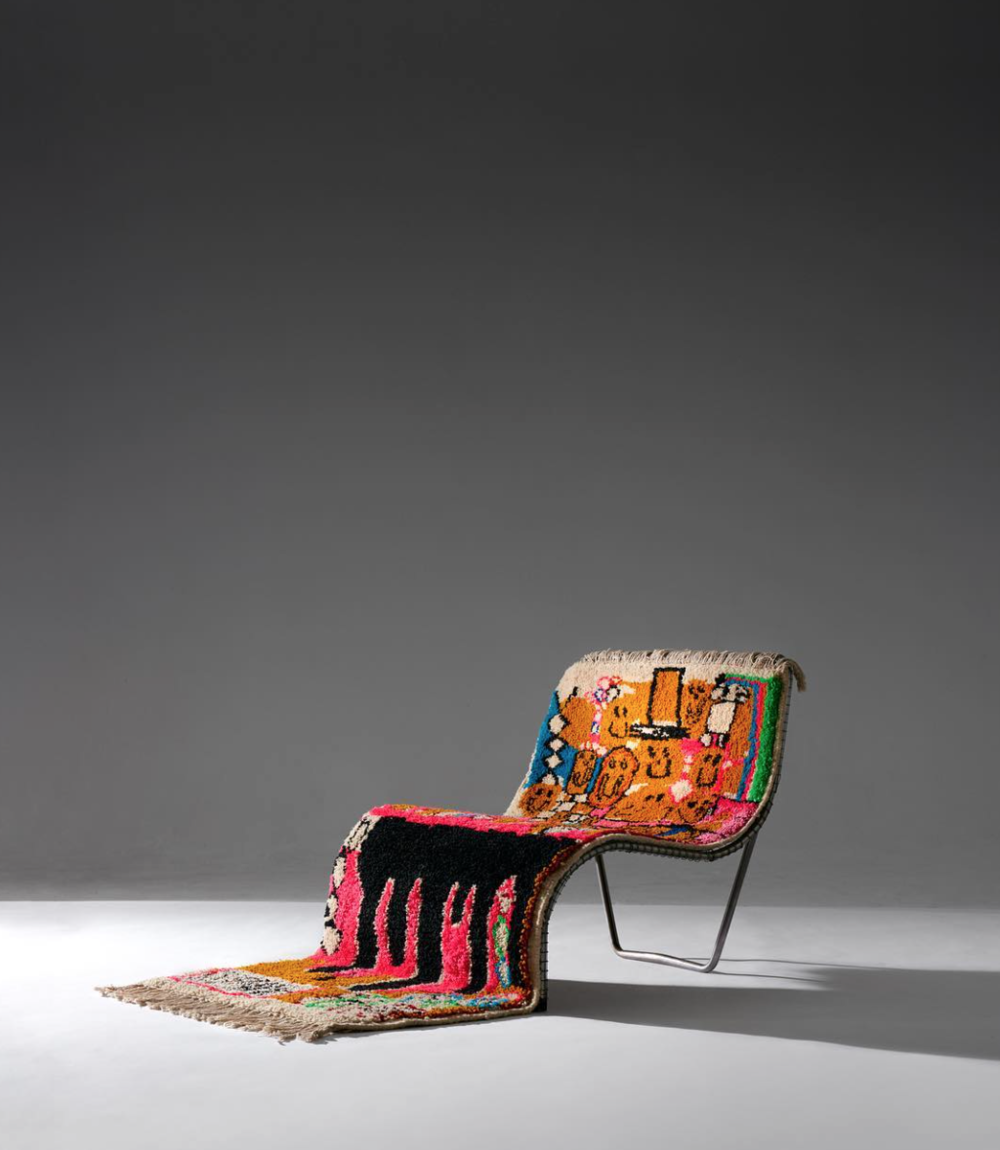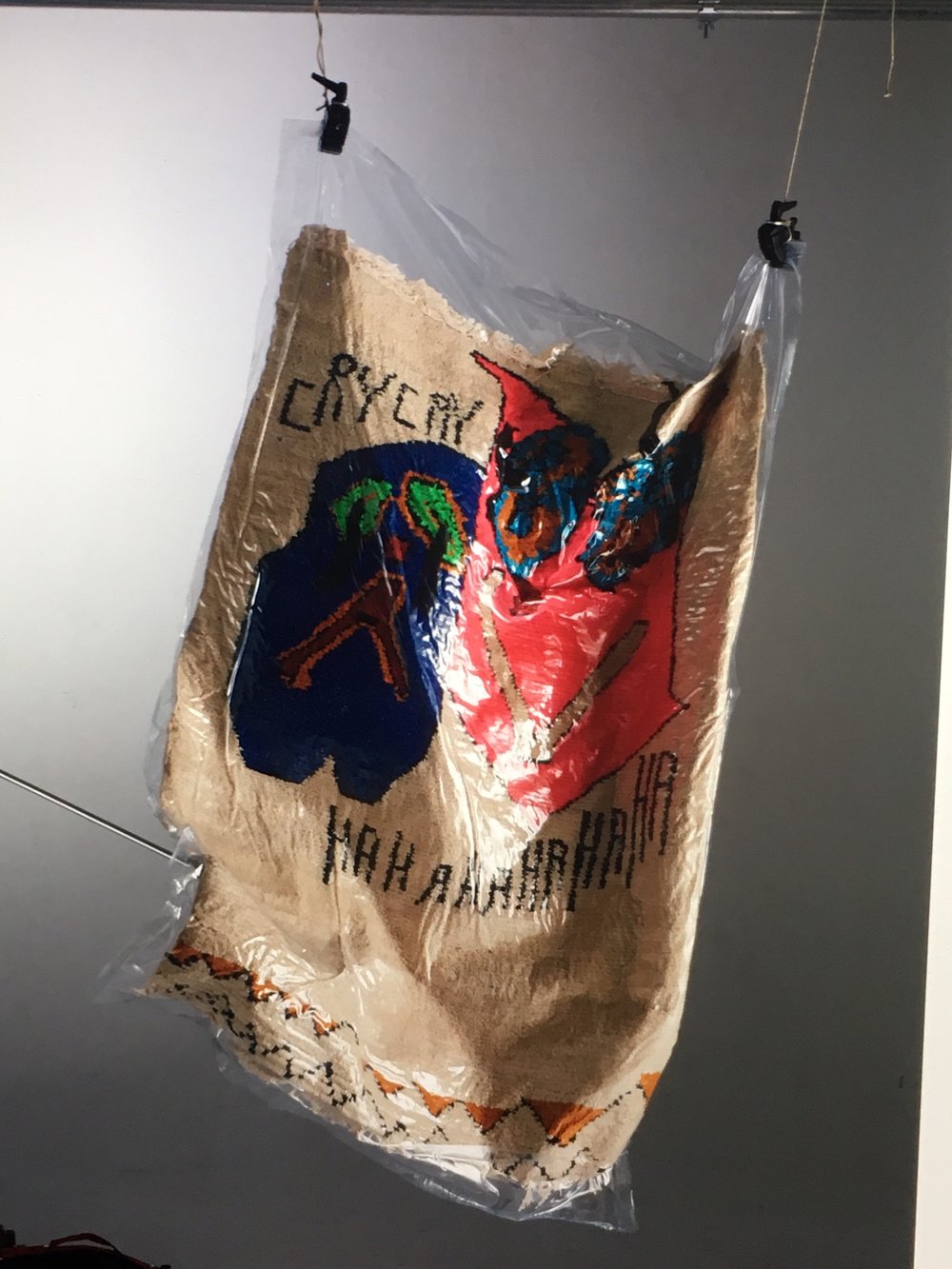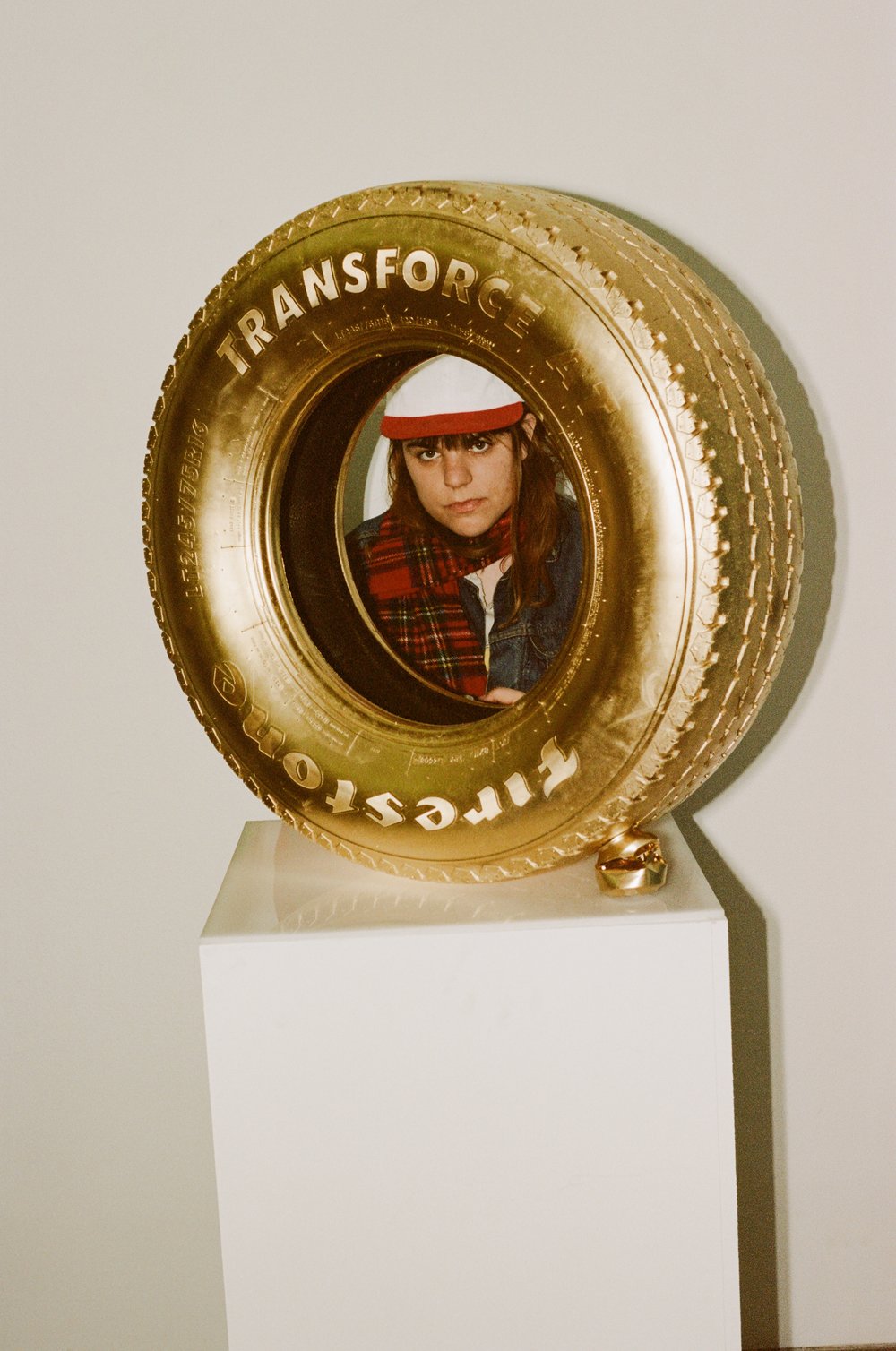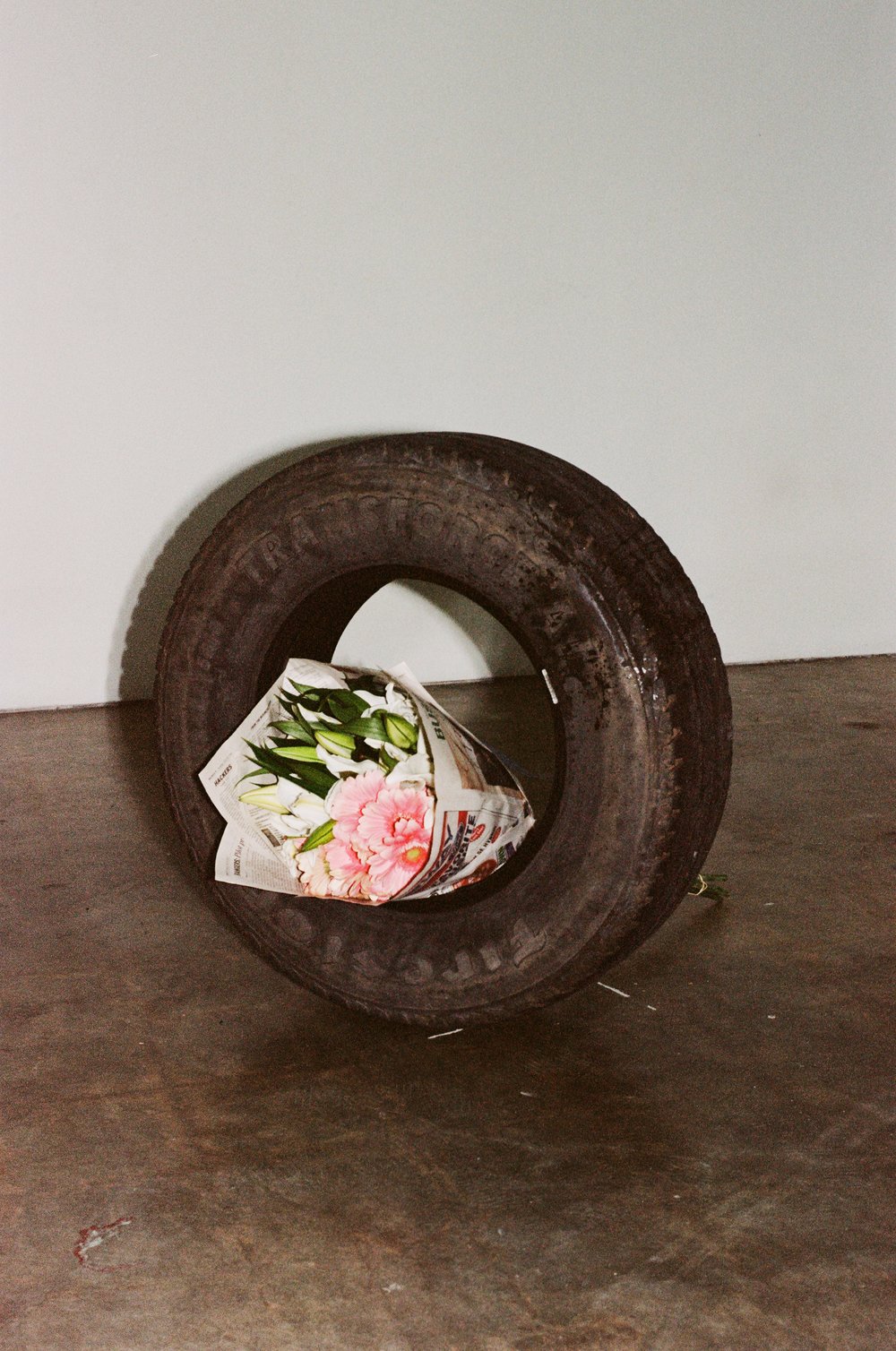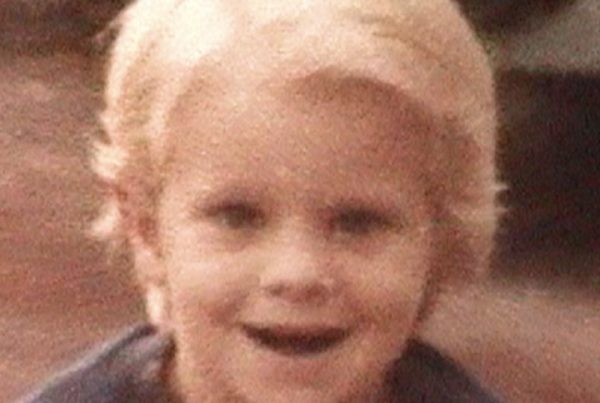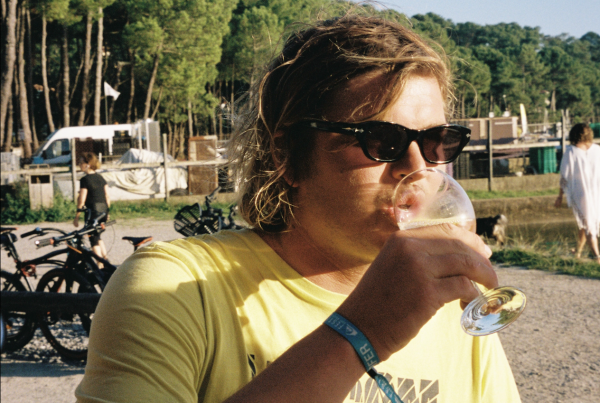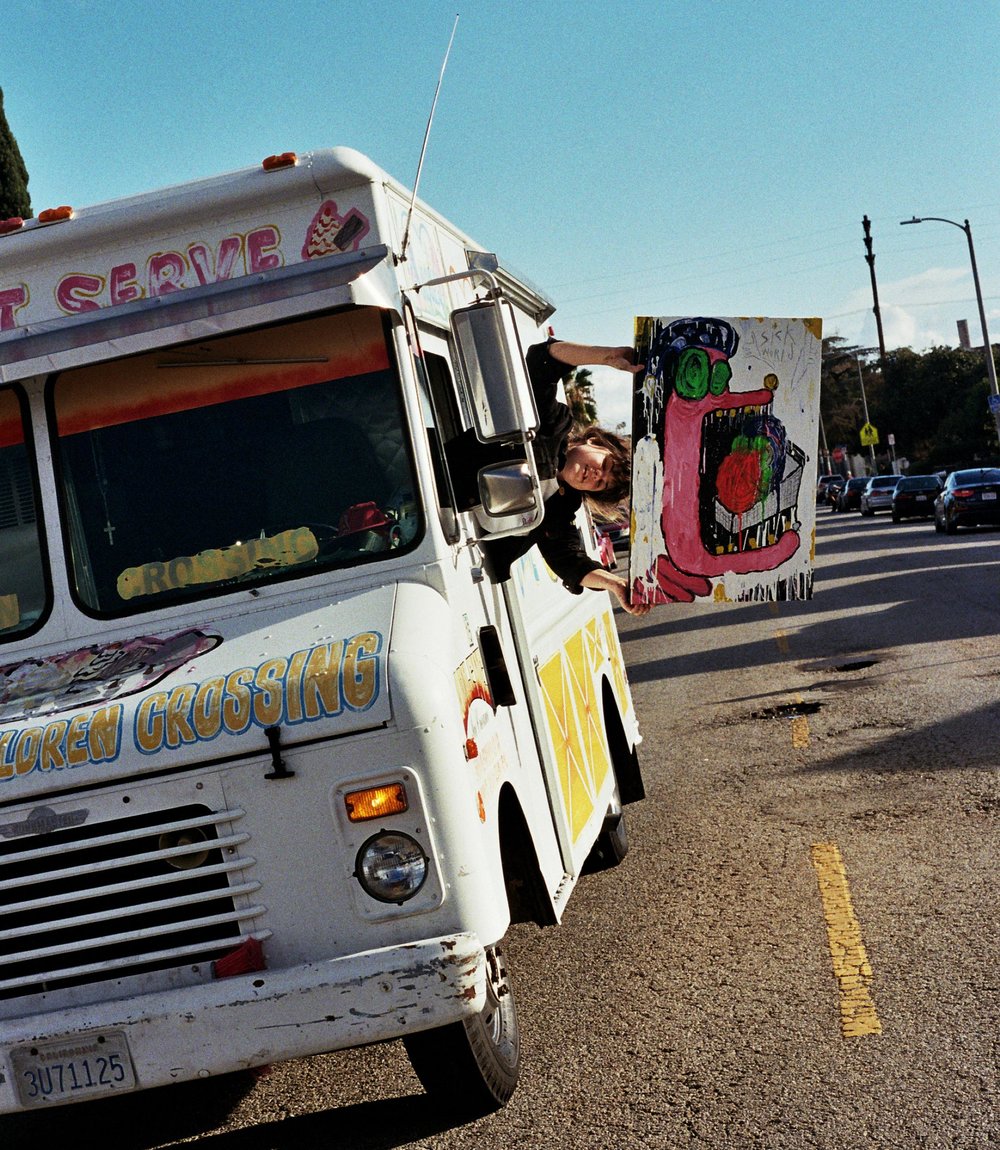
Interview: Guillem Cruells / Photos by: Rafa Castells, Guillem Cruells & Marçal Vaquer
We recently met Maria Pratts at her studio in Hospitalet, Barcelona and decided to go to grab a few beers in one of the most authentic bars of the area. After a few hours talking and laughing inside the bar, we bought more Estrellas and walked to her studio to talk about her life and her work as an artist.
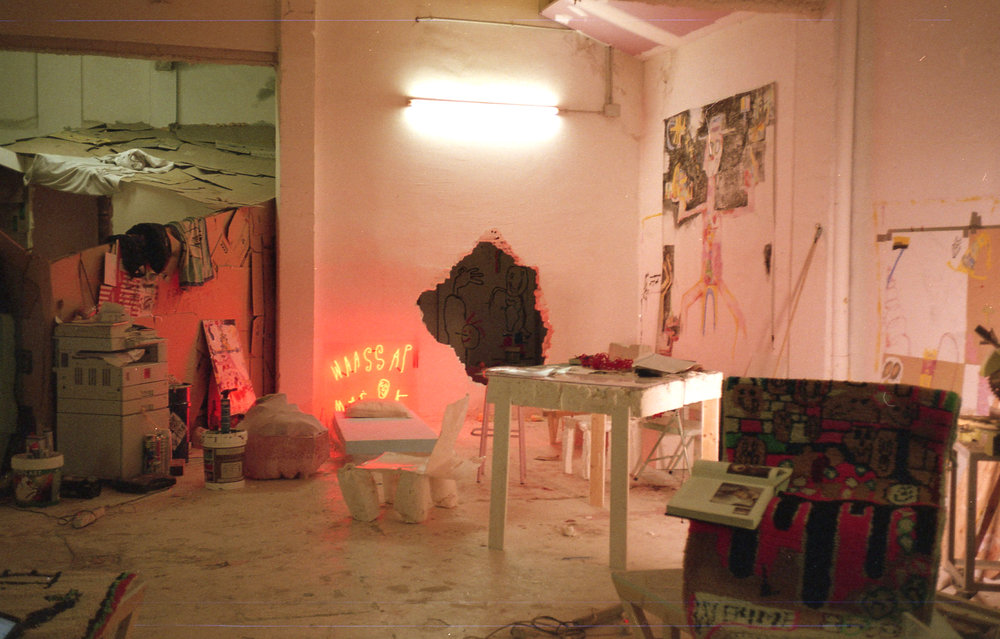
Maria’s studio/appartement.
WT: Marria! We first wanted to ask you about your upbringing. Did you grow up in Barcelona?
MP: Yes, I was born in Barcelona, in Gracia to be exact. But when my mom died, my father and I moved to another house in the mountains above Barcelona.I grew up there isolated. I remember it was the last house on the street and was really hard to walk to the city from there.
WT: How did you see the city and its people evolve during those years?
MP: I think it’s always been the same, like everywhere. There are some people who like to work against the shape of our world and others who like to fit in this shape. And I think Barcelona is like that. There are lot of people who like to follow the current. And there are others who like to do beautiful things, but everything is linked with money and at the end, it’s not that magic. When I was a kid, I didn’t have a lot of friends but after a while I met some people that were similar to me. We started living together, and I think during that period of time we started to do lot of beautiful things, without thinking about money, just for the love. But the world is built up around this ‘system’, so we have to be part of it if we want to live.
WT: At what point in life did you realise that creating art was what you wanted to do?
MP: I’ve always been doing poems and drawings, but I remember when I started living with this group of friends, one day I arrived home and I said, ‘From now on, I’m going to live doing what I like to do.’ It was a difficult decision for me because you have to believe 100% in yourself and it’s hard to start working in something you really love to do but maybe no one cares about it or maybe no one will like it. I spend lot of with myself working like this and I think it’s one of the most difficult parts of my job.
WT: Were people around you supportive?
MP: All my friends support me and if I do a show, a lot of them come to help me when that happens. Imagine how underground rappers have all these people supporting them…it’s same but with art. We hang together and if one of my friends does a show we will go and support him too, and that’s beautiful. Live day by day with your friends and just see how everything evolves. Sometimes I say no to the ‘professional show builders’ just to bring a friend to help me to build the exhibition and that’s way funnier! But yeah, a lot of friends and people in Barcelona support me. Barcelona is really great like that, I love it!
WT: Did you go to art school?
MP: I studied Fine Art in Barcelona. But I always felt like an anomaly on the streets, like strange, alone…so when I found someone who wanted to join me and grab my hand to walk through this strange journey with me, it felt good. Art school made me feel strange too. Some days I thought I was born in the wrong time or something like that, because I didn’t enjoy my studies. Then I don’t know why but I started Graphic Design at university and that was a black hole for me. I felt like a stone going down the mountain. So I left uni and I moved to London. That’s where I started to do my own things.
WT: We’ve heard that you and a group of friends rented a basement in Barcelona and organised shows in it? “Jornadas en el Sotano” is that right? Can you tell us more about that?
MP: It was really cool, it was in a basement at Carrer del Roser in Poble Sec, Barcelona, and my friends and I we organised exhibitions with painters, photographers, etc. We didn’t have a budget and everything was home made! It made it really real! After the exhibitions, we always invited friends to play music and it was really pure and magical. For me, the sensation of what we created there was similar to falling in love for first time; it was amazing. After a couple of shows, we had a problem with a pipeline and the basement filled with shit, haha! I think it’s still closed at the moment. Some people say, “It all turns to shit in the end”, and that’s how Jornadas en el sotano finished.
WT: Your work touches on social issues such as poverty, politics, police violence… Is this intentional?
MP: I’m a really intuitive person; sometimes I just grab a bike and I go to the beach, without thinking about anything. I just do it because it comes to my mind. I think painting, it’s a magic thing, you can create life and I think the reality that I like is in there. The stuff I do, it’s like alchemy. I do lots of different things: I document with photography what I see in my daily life. Sometimes I write or I build an installation… and at the end, everything comes together.
WT: Where does your style comes from?
MP: My childhood was really hard but I’m proud of myself because I didn’t break. I always felt like a weird person in this world but I also always had everything clear in my head, I listened to my mind and I believed in myself. I always remember when I was in school and everybody was laughing at my writing, but it was my style of writing, and I didn’t change it just to be similar to everyone else. It’s the same now, my style came from inside me and I just let it flow. Now everyone knows what my writing style is like, and it’s funny because everyone wants to unify and to be the same. Like if you buy a piece of industrial Mortadella at DIA supermarket. I just think I want to be authentic, be myself and try to not be swayed by others.
WT: We’ve heard about your show at Sade gallery in Los Angeles, as well as Land Costa Mesa Cultural Center…
MP: A few years ago I had the opportunity to travel to America and I don’t why but I decided to go to LA. I had in my mind the image of a really beautiful container and if you open it, there are some snakes, Mickey Mouse laughing, Frankfurts, lots of beautiful and ugly stuff. I flew to LA with my friend Elena and we went to an inauguration at Sade and I met the director and his partner. Afterwards, I spent some time at his house and we really clicked. A year after I came back home, Sade gave me the opportunity to do a show there and that’s when I met Alex Knost and his girlfriend, Daniela. Right after this, Daniela proposed I to do a show at the Costa Mesa Cultural Center. But I’m not the kind of person who thinks about the business side and organising all these things, so I told them, “If I’m there and everything flows organically, we could do something”. Finally, I went to Costa Mesa and I spent a week at Alex and Daniela’s house. My friend Isaac who documents my work was there too. It was really fun and lots of people came to visit the shows. It was just enough people though, as I hate it when it gets too crowded.
WT: How is it to share a house with surfers?
MP: Really good! For me, Alex is a really romantic person. I never met a person who practiced surfing before. I always thought that surfers were really connected with the earth and nature, and that’s really magic. Alex and his friends always remind me that time isn’t important and you can live your life by improvising. When you’re with him you might be driving somewhere and finally end up drifting to a completely different place, to do something different because you just feel like it. Tuning in with the present, that’s the key. It’s an awesome experience.
WT: What are your plans for the future?
MP: I want to do a show here in my studio in five or six months, and include some new works. I’m thinking about doing some big paintings. Maybe I’ll do a documentary about how I’m living and working here. The way that every day someone comes here to visit me. We could even organise a dinner here. It could be a good documentary. I rent this studio and originally it was just four plain walls. I won’t be here for the rest of my life and it would be nice to leave my mark doing something like that.
WT: Do you want to talk about something else before we finish up? Anything I missed?
MP: I think we have to believe more in love.
WT: Thanks Marria for your time!
MP: Thank you guys! Let’s go grab another beer!

